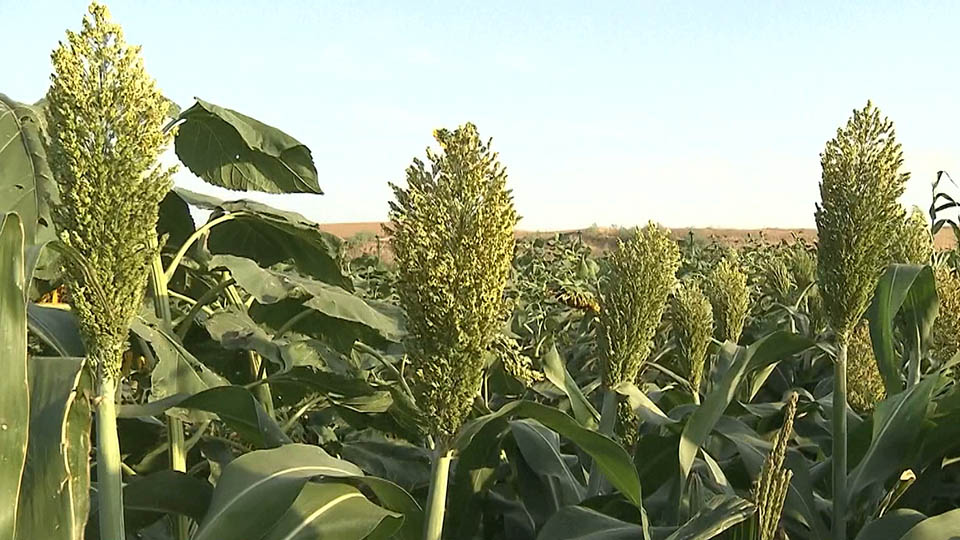CGTN America: New technology in China turns desert into land rich with crops

by Frances Kuo | September 13, 2017
Drawing a roadmap to combat the spread of deserts worldwide.
It’s the mission of the United Nations Convention to Combat Desertification in the Inner Mongolian city of Erdos.
The host country, China, was praised for a law it passed in 2002 — the world’s first integrated law dedicated to combating desert expansion.
With this goal in mind, China has carried out several projects that have been successful, including at one desert in northern China.
CGTN’s Frances Kuo reports.
Little, if any, rain and scorching temperatures – not exactly ideal conditions to support vegetation.
However, turning that logic on its head is a desert in North China’s Inner Mongolia Autonomous Region.
“According to our calculation, there are over 70 kinds of crops growing here. Many are not planted by us but they just grow themselves,” said Zhao Chaohua, Associate Professor of Chongqing Jiaotong University.
Crops like corn, tomatoes, sorghum and sunflowers are transforming more than 200 hectares of sand dunes into an oasis – all within six months.
It’s all thanks to new technology developed by researchers at Chongqing Jiaotong University. They developed a paste made of a substance found in plant cell walls.
When it’s added to sand, it’s able to retain water, nutrients and air.
“The costs of artificial materials and machines for transforming sand into soil is lower compared with controlled environmental agriculture and reclamation,” Yang Qingguo, professor at Chongqing Jiaotong University said.
The research team has big future plans. This fall, it hopes to transform an additional 200 hectares of desert – and possibly more than 13,000in the next few years.
The method could be promising for China. In three years, the country hopes to reforest 50 percent of degraded desert land that can be treated. By 2030, the United Nations is aiming to reach zero growth of desert farmland around the world.
China’s breakthrough experiment in converting sand to soil is promising for making land seemingly hostile to life, fertile ground.
Rebecca Schneider discusses anti-desertification efforts in China and globally
CGTN’s Mike Walter discusses anti-desertification efforts in China and globally with Rebecca Schneider of Cornell University.